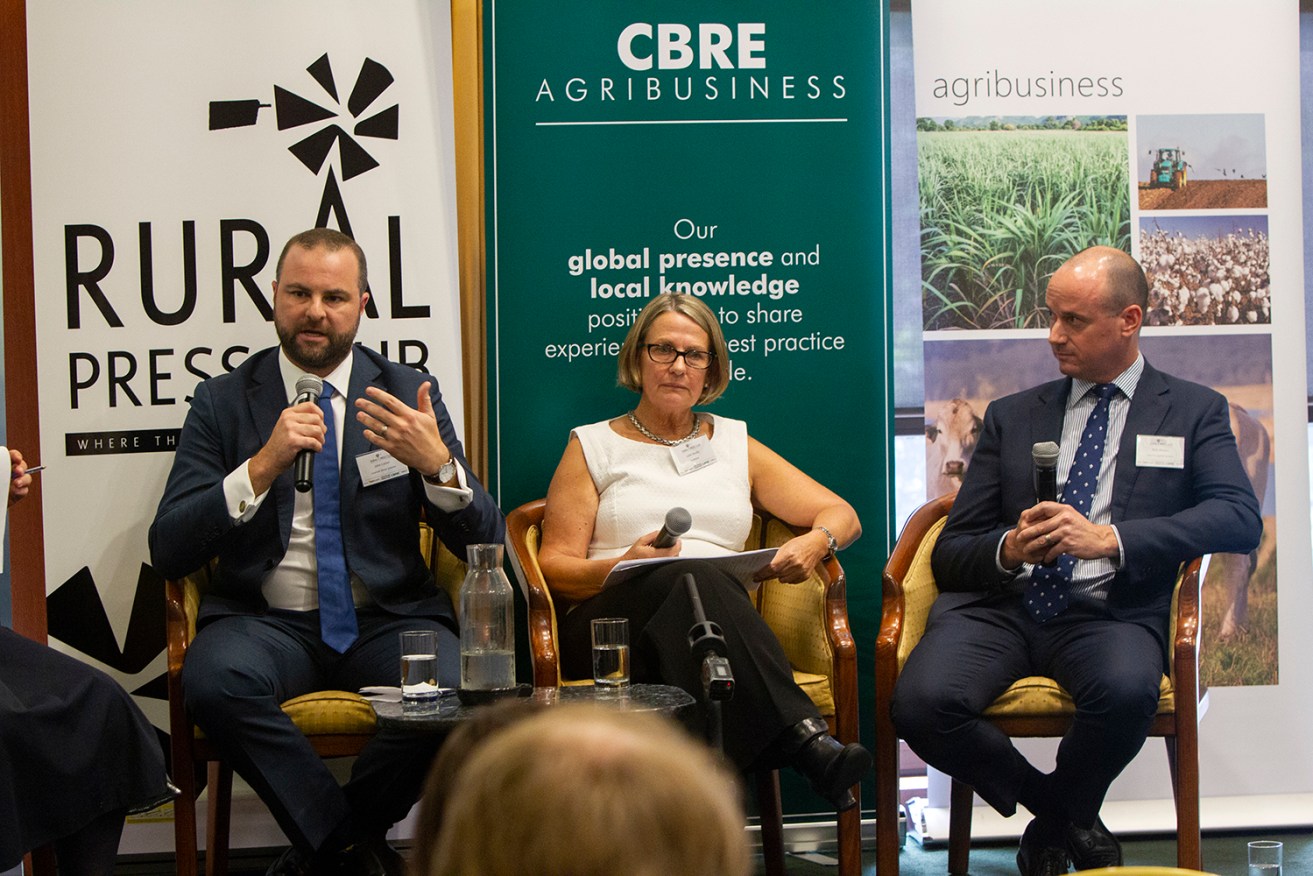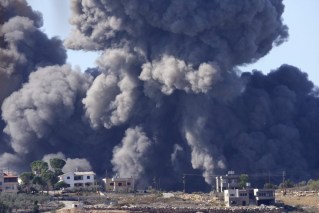Think you know the regions? This is their must-do list
With elections in the air, talk in Brisbane has moved beyond the city limits to include regional development, where two events had subjects like infrastructure planning, internet connectivity and dam building on the table.


Rural Press Club panellists John Cotter, Leith Boully and Nick Waters. Photo: Rodney Green
If local government is meant to be about “rates, roads and rubbish” then six regional Queensland mayors emphatically rejected that assessment with an impassioned plea for more investment into “big picture” projects so their regions can be the economic powerhouses of the State.
With statewide local government elections on March 28 and a state election on October 31, the Queensland Futures Institute breakfast discussion last Thursday in Brisbane proved a ripe opportunity for all to press home their region’s credentials and to pitch for more state and federal funding in the hope the hunt for votes will loosen up the purse strings.
And the six invited guests – Isaac mayor Anne Baker, Townsville Mayor Jenny Hill, Rockhampton Mayor Margaret Strelow, Bundaberg deputy mayor Bill Trevor, Redland Mayor Karen Williams and Balonne deputy mayor Fiona Gaske – didn’t hold back.
All identified improvements to essential infrastructure, internet connectivity and water security as critical to advancing regional development.
Rockhampton mayor Margaret Strelow said her region had abundant water, a vibrant cattle and mining industry and long-standing arrangements with the Singapore Government to invest $2.2 billion in joint military exercises with the Australian Defence Force at Shoalwater Bay.
“We have all of this going for us, but somewhere in the middle of all that opportunity we are struggling to get government funding and support to help drive down our unemployment and give our kids jobs,” Strelow said.
“There needs to be a big picture solution.”
For Bundaberg deputy mayor Bill Trevor, who will be returned on March 28 unopposed, water security is critical for local prosperity, especially in his region where huge growth in plantings of macadamias, avocados and sweet potatoes have boomed in the last decade.
“With more people across the world rising to join the middle-class food will become the new energy, and we are well placed to capitalise on these opportunities,” he said.
“Regional development needs a partnership between federal, state and local government. We all dream of that factory that comes along and invests $100 million and creates 300 jobs in your town, but it very rarely happens.
“It’s the partnerships between the three levels of government to assist businesses that creates those opportunities.”
Dam building in focus
Three hours after the Queensland Futures Institute breakfast, dam building and the role of government and private investment in such projects, was the focus of discussion at the Rural Press Club in Brisbane.
According to Leith Boully, chair of government-owned water supplier, Sunwater, there is a distinct mood by regulators and the public to move away from the construction of big dams as the solution to securing water for rural and regional communities.

Mayors on the menu, from left: Jenny Hill, Margaret Strelow, Bill Trevor, Karen Williams and Fiona Gaske. Photo: Di East.
Paradise Dam near Bundaberg is a case in point. Built in the mid 2000s to service mainly cane growers, the dam is now stretched beyond its capacity to meet the region’s expanding demands, forcing the State Government to investigate lowering the dam wall due to safety concerns, which threatens to slash available water for irrigators.
Fellow panellist John Cotter agreed that dams should not be built solely for water harvesting, instead advocating for the need to link their value to energy generation and food production.
Cotter heads the Urannah Water Scheme, a collaboration of local businesses in the Bowen Basin in north Queensland to provide energy and irrigation water to people in the Mackay, Whitsunday and Isaac regions.
Still in the construction phase, the project was approved last May with a $10 million grant from the Federal Government.
In a statement released ahead of his Rural Press Club appearance, Cotter said governments across the board needed to ensure that policy settings supported the private sector to bring projects forward and provide certainty for investor confidence.
“There are over 2000 approvals and three years to bring a project to financial close and that is why so many projects don’t progress beyond feasibility phase,” he said.
“We know that farmers and Queenslanders have feasibility fatigue and are sick of study after study after study.
“We need to move beyond a constant discussion on where public funding should be spent and ask government to take leadership as an early facilitator to the market and then let each project stack up on its merits.
“Unfortunately, we know that dams for dams’ sake don’t stack up. It is only when they are combined with a true vision for broad-scale regional economic development that has direct food and energy outcomes, that a project can progress beyond feasibilities.”








